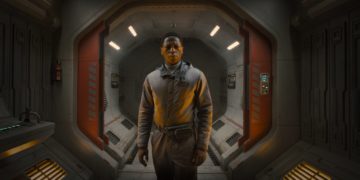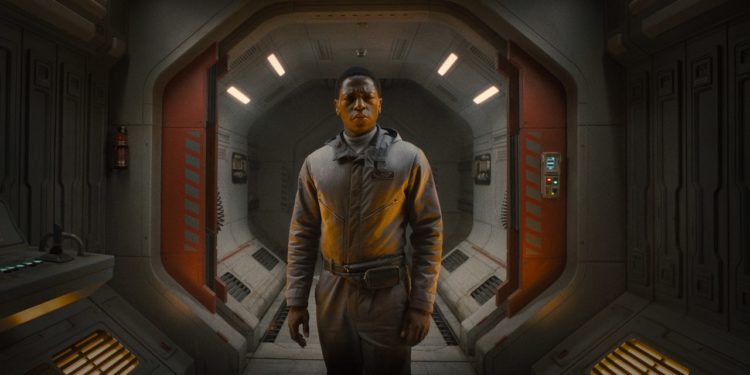The grand horror, and dark fun, of the Alien movies lie in their moments of discovery: an unsuspecting crew wanders into a parasitic nightmare which reveals itself in sudden, gruesome fashion. Of course, that shock has dulled some since Ridley Scott’s original 1979 film; it’s been repeated over and over again in seven other movies, and now an eighth, Alien: Romulus, in theaters on August 16. We anticipate a face-hugger grabbing onto some poor sap’s skull, the violent explosion of their chest, the gooey uncoiling of a monster hiding right above the heroes’ heads. It’s a familiar pattern. But when done the right way, these iterative beats are dreadfully good—the franchise has endured for a reason.
In the last 12 years, though, the Alien movies have become heavy with mythology about the terrible creation of life on Earth and other places in the universe. Elegant creature-feature has given way to God and existential quandary. It’s less and less clear if we are meant to be drawn in by the icky jump scares or the brooding, nihilistic philosophy. Romulus finds itself caught between those two modes, wanting efficiency and ornate meaning at once.
Fede Álvarez’s film is handsomely mounted and propulsively grim, another Alien misery about people stuck in an impossible, surely fatal situation. This time around, the people involved are relative youngsters, children of a system of indentured servitude managed with capitalist antipathy by the Weyland-Yutani Corporation—the sinister entity that has loomed over nearly all of the films in this scattershot series. Rain (Cailee Spaeny) and her friends are stuck on a permanent-night mining colony, a bleak place from which escape seems impossible. Their parents have died on the job, and they will likely suffer the same fate. Still, Rain dreams of a place in the sun, far away. When the opportunity to steal some cryo-sleep pods and flee her prison arises, she figures she must seize it.
The mission involves looting a Weyland-Yutani space station that is drifting in the aether overhead, presumed abandoned. Of course there are in fact things living on this vessel, which Rain and company encounter with gnarly results. In this introductory stretch, Álvarez’s compositions are grimy in a stately manner, nicely mimicking the ragged texture of the first film, all its dingy hallways and groaning machinery. There is also a welcome echo of Alien’s elegy for the working class; these people are just trying to live a little bit better, and are punished mightily for it. But Romulus is also more interested in action than was its 45-year-old parent, requiring the use of CGI and set-piece spectacle that undermines the cramped, practical terror of the film’s first third.
Romulus, which is set between Alien and Aliens, initially seems like a straight “requel” of Alien—essentially the same claustrophobic setup, done with more modern flair and an eye toward expanding the story into the future. Something like The Force Awakens, which closely mirrored the plot structure of Star Wars without writing over it. But as Romulus rolls along, it gathers in elements from 1986’s Aliens, 2012’s Prometheus, and 2017’s Alien: Covenant, becoming a pastiche of the franchise as a whole. It’s a little overindulgent, maybe, full of Easter eggs and callbacks—there are electric prods like the one wielded by Harry Dean Stanton in Alien; a flutter of the Prometheus score serves as a cue to remember that movie—while also trying to invent its own vernacular. Romulus’s contribution to the emergent lore about DNA and the seeds of life is certainly gross and scary, but is really only a less compelling rehash of the wilder ideas of Prometheus and Covenant.
What begins as a humble “there’s a monster in the room with us” horror gradually expands into something baroque. To offset that swell, Romulus attempts to ground the story in personal narrative: Rain’s deep care for her “brother,” Andy (David Jonsson), a slightly defective android whose mis-wiring renders him a rather unsubtle stand-in for neurodivergent people here in our real world. Benjamin Wallfisch’s turgid, discordantly sentimental score is at its most glaring when Rain and Andy are sharing some moment of emotional angst, strangely maudlin notes in a movie that is otherwise steadfastly cruel to its characters. I suppose you could chalk up such noodling over family and identity to softer millennial sensibilities. (The Andy plotline also necessitates the virtual resurrection of a beloved late actor, a practice I wish the industry would abandon entirely.)
Still, the movie is successful in its most basic function. A gravity device introduced early on is satisfyingly employed two acts later. The awe and desolation of outer space’s howling enormity is well conjured. The actors—the cast also includes Archie Renaux, Isabela Merced, and Spike Fearn—all keenly register the gut-wrenching terror of encountering such a ruthless, otherworldly, acid-blood-boobytrapped enemy. If it hadn’t had someone of Álvarez’s care and attention at the helm, Romulus could certainly have been a lot worse.
One does wonder, though, how many more times we can watch this same chain of events play out. We’ve seen it in space, we’ve seen it on mysterious planets, we’ve even seen it on Earth. (The latter provides the setting for the Alien vs. Predator films, which I am perhaps unfairly including as part of the same franchise.) Stylish as any future outing might be—and Romulus is certainly that—there will likely be an increasing conviction that further embellishment is the only viable path to originality. An irony, perhaps, when so much of the argument of Romulus and its brethren is that seeking a higher form through dangerous experimentation will lead to ruin. Those lessons seem difficult to take to heart. When the experiment doesn’t work—Weyland-Yutani and Hollywood keep figuring—it’s best to just try it again at a later date, with newer and more dangerous methods.
More Great Stories From Vanity Fair
-
September Cover Star Jenna Ortega Is Settling Into Fame
-
The Twisted True Love Story of a Diamond Heiress and a Reality Star
-
Republicans Think Trump Is Having a “Nervous Breakdown” Over Kamala Harris
-
Exclusive: How Saturday Night Captures SNL’s Wild Opening Night
-
Friends, Costars, and More Remember the “Extraordinary” Robin Williams
-
Tom Girardi and the Real Housewives Trial of the Century
-
Listen Now: VF’s DYNASTY Podcast Explores the Royals’ Most Challenging Year
The post Alien: Romulus Wants to Be All the Alien Movies at Once appeared first on Vanity Fair.



















